Free-from bakery doesn’t have to mean free from flavour, texture, or nutritional value thanks to the hard work bakers have put into gluten-free items over the past few years.
The gap to conventional bakery has been significantly reduced, helping to erase some of the negative perceptions and support growth of the free-from fixture at retailers.
“Consumers who do have to choose gluten-free for dietary needs are no longer as ‘shortchanged’ as they once were,” comments Jacqui Passmore, marketing lead West EU & AMEAP at Dawn Foods.
Shoppers are responding to these developments and, as such, the category is growing at a healthy rate. Gluten-free bread amassed sales of £128m, according to Circana data for the 52 weeks to 23 March 2024 – a figure that has climbed by 51% over the last five years.
What’s more, gluten-free is becoming increasingly popular among younger consumers who choose to avoid or limit gluten for lifestyle or general health reasons, rather than an issue such as coeliac disease. Recent Mintel research found that 15% of households surveyed said they are avoiding gluten and wheat, with 26% of consumers claiming to avoid gluten as part of a healthy lifestyle.
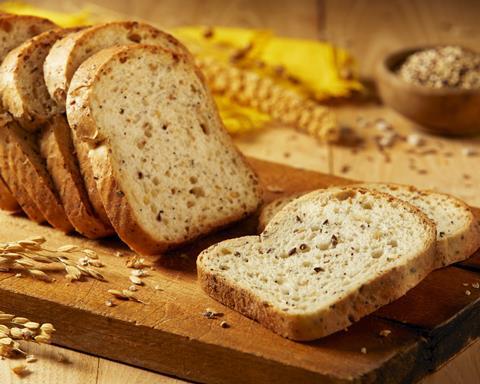
But that’s not to underplay the importance of those who shop the free-from aisles for medical reasons, as Bradley Grimshaw, managing director UK & Ireland at Dr. Schär explains: “Gluten-free bread is the most important sector for the ‘super heavy’ buyers in gluten free, which are the 2% of buyers that account for 37% of all category spend – a split unique to the gluten free category.”
So, who are the players taking advantage of this blossoming market? And what strategies are they employing to keep core and casual consumers engaged in it?
Brand power
As the number one brand in the space, Warburtons is leading the charge having cornered nearly a quarter of the market – Nielsen Homescan and Scantrack data for the four weeks to 23 March 2024 showed it accounted for 24.7% of the market’s value.
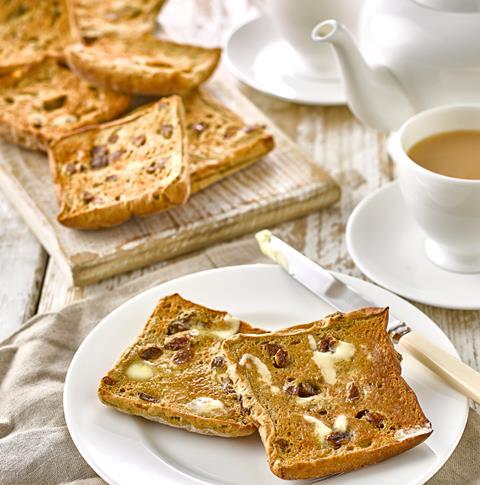
This, according to Warburtons director of free from category, Chris Hook, is down to the firm’s focus on “ensuring we bake a range of quality products that delight consumers and continuing to innovate, focus on availability, value and quality are all key to future growth”. “We believe gluten free shoppers shouldn’t have to compromise on choice, taste or quality and providing products that meet these needs will continue to provide long term growth to the category,” he adds.
Innovation for Warburtons comes in the form of the recently launched gluten-free Soft Pittas and Cinnamon & Raisin Sliced Fruity Buns. The latter, along with gluten-free hot cross buns which have been unveiled by a flurry of retailers including Tesco, M&S and Sainsbury’s, have helped grow the free from fruited snacking category by 52% over the past two years.
Warburtons is facing stiff competition with the likes of Genius and Dr. Schär snapping at its heels.
Dr. Schär has expanded its gluten free range in a similar fashion with the likes of pitta, flatbread, and rolls, the latter of which Grimshaw claims to “have also seen excellent growth as their texture moves forward”. Other NPD include brioche rolls, marble cake, madeleines, and biscuits, along with Balance of Both loaves that “blend the taste of white and the goodness of wholegrain”.
Quality has also been at the forefront for Dr. Schär since acquiring its first UK-based factory in 2022 as it looked to boost its presence in the UK fresh bread market.
Genius has also made its expansion plans clear having secured £7.5m in funding to improve efficiency and production lines at its factory in Bathgate, Scotland. Since being acquired in 2022 by Katjes Greenfood – the investment arm of German confectionery group Katjes – Genius has also undergone a revamp with recipe updates across its range and relaunched its sliced loaves alongside a £500,000 advertising campaign. As well as growing its category share, Genius will also be looking to turn its fortunes around having reported a £2.4m loss from continuing operations for the year ended 31 December 2022 (the latest financial results available for the firm).
Overcoming obstacles
The market as a whole is also facing challenges, namely the rising cost and challenging availability of some ingredients. This, in turn, is increasing the price of gluten-free baked goods for consumers which is less than ideal in market where these items already carry a significant premium compared to their gluten-containing counterparts.

“Focusing on how gluten-free bakery can become more attractive from a cost perspective should be a priority,” states Stuart Galbraith, category lead UK at sweet treat manufacturer Baker & Baker which has a dedicated gluten-free production facility in Ashington, West Sussex.
There is no magic bullet for this. Economies of scale will play a part but so will continuing to build brand loyalty through top quality products and luring new consumers in with innovation.
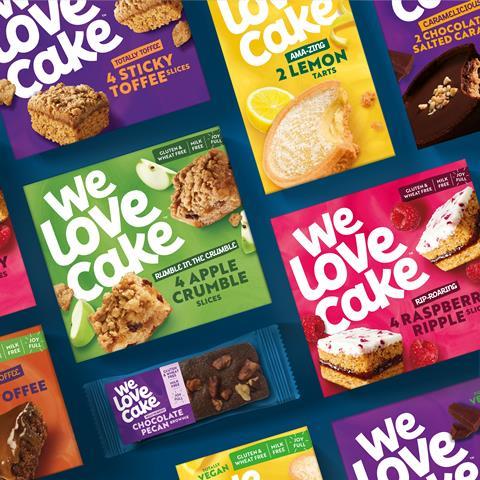
Josh Boydell-Smith, head of marketing for Bells of Lazonby which manufactures the recently refreshed gluten-free bakery brand We Love Cake, says it is the job of brands to change consumer perception of gluten free through the right communication and building trust in great tasting food. While reminding that promotion can deliver great value for consumers, he adds that it is equally important to continually invest in the long-term brand health.
The rising costs faced across the food industry are even more prominent for gluten-free manufacturers, notes Boydell-Smith, as they are in a “niche market where certain ingredients have a more scarce and rigorous testing regime”. Thus, it is vital to keep innovating and finding more efficient ways in production to offset inflation.
Anthony Saison, head of category insights & customer marketing at Mademoiselle Desserts, emphasises the role that social media influencers can play in improving the category. By driving engagement with gluten-free specialists and sharing recipes “that get more ambitious and appetising each time”, this will lead to greater expectations from gluten free consumers and therefore raise the bar for manufacturers, he believes.
Mademoiselle Desserts has been baking gluten-free goods (including for its brand The Handmade Cake Company) at a fully segregated production site in Maidenhead for more than a decade. Its sales are said to have grown by 60% since 2019 and, when combined with vegan sales, make up around a fifth of the firm’s total UK business.
Innovation for the nation
There’s been a steady stream of new gluten-free bakery products over the past 18 months, says Hook at Warburtons, noting that innovation is “critical to category growth” and “incredibly important” for consumers.
Shoppers in this space want good quality staples as well as new and innovative treats to ensure they’re not missing out on excitement by forgoing gluten.
“End users don’t want a standard loaf of bread,” explains Gary Fox, bakery specialist at equipment supplier Reiser. “They’re looking to expand the palate and explore different flavour profiles.”
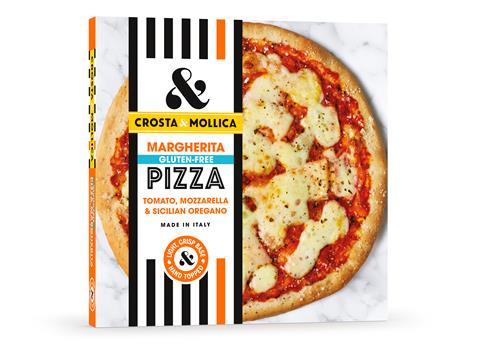
The same is true of gluten-free categories beyond bread. London-based Italian food brand Crosta & Mollica came out with a gluten-free margherita pizza last year, which it said had its gluten carefully extracted. “Our dough is slow-proved, creating an open crumb structure for a light, fluffy texture that makes this gluten free alternative almost indistinguishable from our traditional margherita,” comments marketing director Dean Lavender.
More recently, dough product supplier Pan’Artisan unveiled a gluten-free pizza base for the foodservice sector, Promise Gluten Free launched new bagels at Sainsbury’s, and M&S introduced a gluten-free toastie and a sandwich its cafés nationwide.
Passmore at Dawn Foods remarks how brownies are least affected by the removal of gluten, allowing plenty of room for new variations with “inclusions, loaded toppings, and flavours such as Rocky Road, Salted Caramel or Chocolate Orange, for example”.
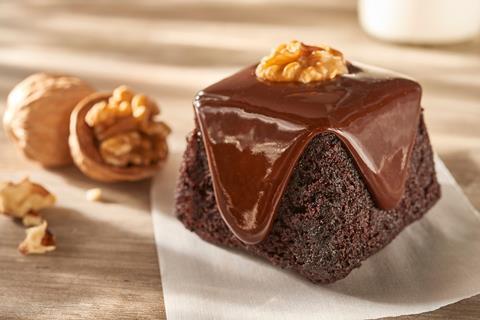
Another interesting development, Passmore adds, is the demand for bakery items catering to both vegan and gluten-free consumers, which she admits it’s a “colossal challenge” for suppliers, especially when making cakes and sweet treats that demonstrate consumer trends for indulgence.
Opportunity knocks
Getting innovation in front of consumers presents a world of opportunity for players of all sizes.
“Leveraging key events, maximising the impact of display and merchandising while working with retailers to lower the barriers to entry for coeliacs, and non-coeliacs alike, will help more consumers access and enjoy the abundance of great products on offer within the free from category,” Warburtons’ Hook adds.
It raises the ongoing debate of where the items should sit within retailers – in a dedicated aisle or among their ‘regular’ counterparts. There are arguments for both, with the former making for an easier shopping experience for those with dietary requirements but potentially losing out on the ability to lure in more of the lifestyle or fly-by consumers.
Notably, manufacturers are building confidence to pitch their gluten-free products to the wider market. “More and more, we are seeing our lines sold within core ranges with a simple Gluten Free flash on pack so they can be enjoyed together by the whole family,” says Baker & Baker’s Galbraith.
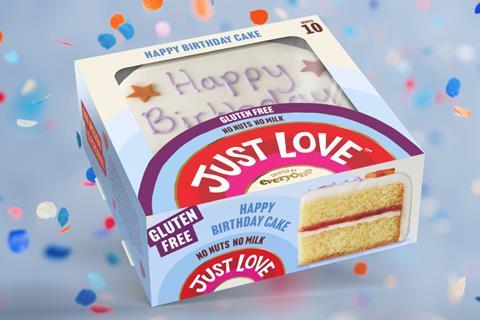
Research from Just Love Food Company, which won the Free From Product of the Year at the 2023 Baking Industry Awards for its Happy Birthday Cake, found that shoppers looking for gluten-free celebration cakes “always head to the main fixture” to check out the options available. Just Love founder Mike Woods assures that despite the “very live debate in retail” about whether gluten-free products should remain in the free-from fixture or not, his strategy is to “put our gluten free cakes on the main fixture next to our vegan cakes” to provide an inclusive solution for celebrations.
Foodservice “remains underserved”, according to Galbraith, and therefore provides an excellent opportunity for manufacturers looking to grow their sales.
Gluten-free products in a snack or food-to-go format are also likely to deliver commercial success, comments Mademoiselle Desserts’ Saison, with the added benefit that they are individually wrapped to prevent cross-contamination.
With purchases increasing, and from a wider variety of shoppers plus some exciting innovations and better branding, the gluten-free category appears set to continue its growth this year and beyond.
ADVERTISEMENT: REISER
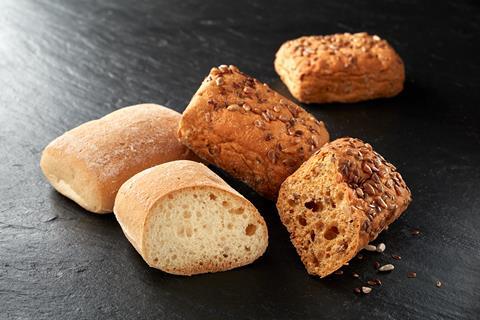
With a rise in more health-conscious consumers, gluten-free bakery products continue their resurgence. However, some challenges remain specifically in the accurate portioning and handling of high-cost batches of dough. This is where Reiser automated solutions can help.
Automation in gluten free applications remain popular for Reiser users, due to less product handling required, and this is a huge benefit for bakeries as they seek value for money in a challenging economic landscape.
The Vemag process check is designed to weigh each portion and feed this information directly into a Vemag portioner, which in turn, adjusts the product weight automatically, thus reducing giveaway.
Vemag attachments for various gluten free doughs can be changed in minutes, covering a wide range of products for bakeries. In addition, the unique Vemag double-screw system does not require the use of divider oil to process bread doughs. This translates to a cleaner and cost-effective operation, helping increase profitability.
To find out more, visit Reiser’s website.



















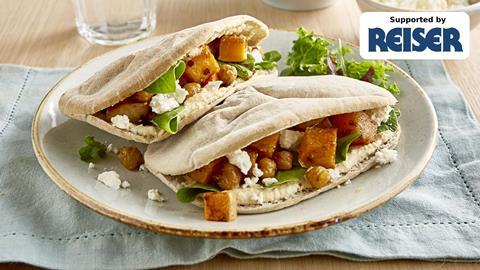
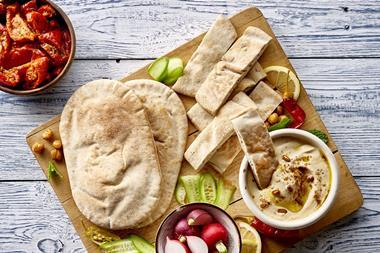
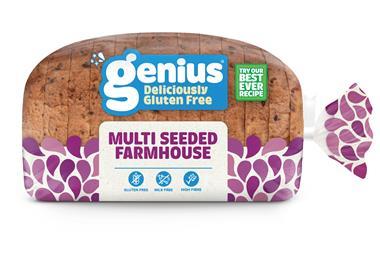
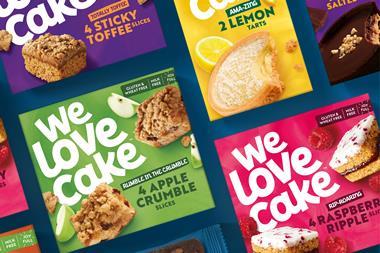
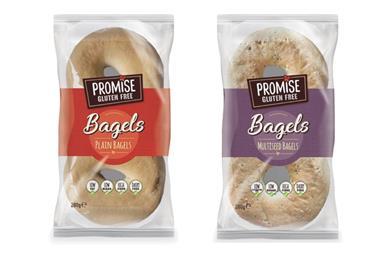
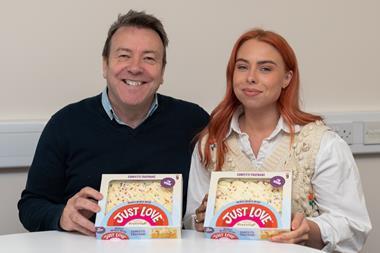





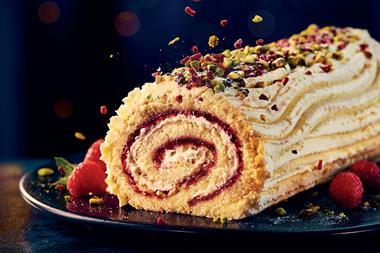
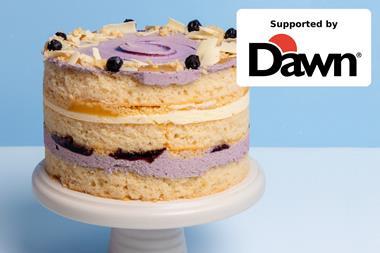

No comments yet